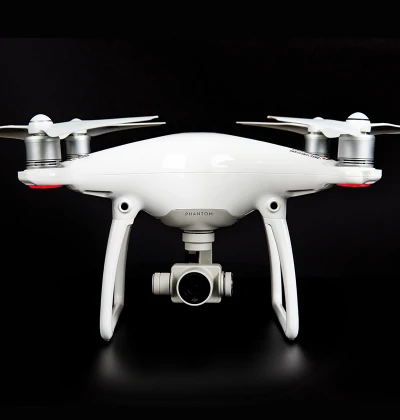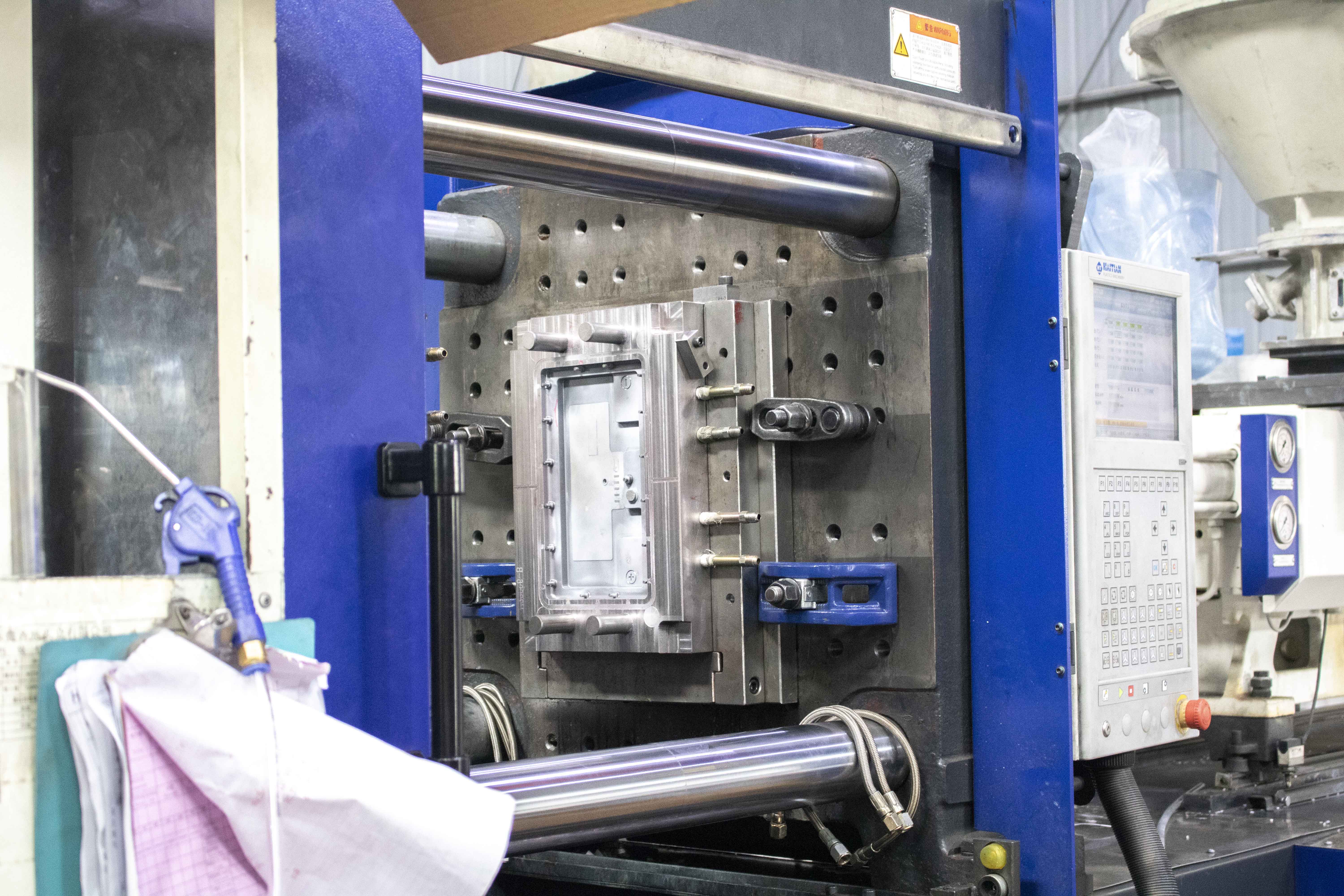- Room 1807, Unit 9, Building 2, Shangxing Commercial Street, Shangde Road, Shangxing Community, Xinqiao Subdistrict, Bao'an District, Shenzhen City, China




Aerospace & UAV
WJ Prototypes is your 3D manufacturing partner from prototype to large scale production.
Consumer Electronics
New Product Introduction Solutions for Consumer Electronics.

Robotics & Automation
Need some assistance bringing your robotic device or parts from the sketch-board to reality?
Medical Devices
The medical industry needs high quality, dependable and safe parts and products.
Automotive
New Product Introduction Solutions for Automotive
Industrial Machinery
The main purpose of industrial prototyping is to take the product from drawings into the real world.

Injection molding companies in China are vital for transforming ideas into tangible products. By leveraging advanced machinery, high-quality materials, and rigorous quality control, these companies deliver custom plastic molding services that enable the production of complex components with precision. In today’s competitive market, understanding their full range of services—from mold design to post-production support—is essential. This article guides you through their services, evaluation criteria, technological advancements, and industry-specific applications to help you choose the best partner for your project.
Chinese Injection molding companies specialize in manufacturing components from plastics and composite materials. They manage the entire process—from mold design and rapid prototyping to high-volume production and secondary processing (painting, printing, assembly, and quality inspections). These companies serve industries such as automotive, consumer electronics, medical devices, aerospace, and packaging by delivering consistent, high-quality parts and offering expert material consultation (using materials like ABS, polycarbonate, and polypropylene).
You can submit your designs to us through our contact us page
OR Email to info@wjprototypes.com
We Are Happy To Help You! - Serving Clients Worldwide From China - Dedicated Project Manager.
No MOQ | Quality & Precision | Fast Turnaround | Rapid Prototypes | Low-Volume To Mass Production | Global Delivery
Injection molding produces parts in large quantities by injecting heated, molten plastic into a custom mold. The process begins with melting plastic pellets in a heated barrel. The molten plastic is injected into a precisely engineered mold, where it cools and solidifies into the desired shape before ejection. This cycle—lasting from a few seconds to several minutes depending on the part’s complexity and the material—repeats continuously. High replication accuracy (with tolerances as low as ±0.1 mm in high-volume applications) makes injection molding ideal for precision manufacturing, including applications involving resin, stainless steel, and composite materials.
Injection molding companies in China offer a variety of services: -
Custom Mold Design: Engineering molds based on customer specifications, ensuring precise geometries and optimal material flow.
Rapid Prototyping: Quickly producing prototype parts using techniques like 3D printing and rapid prototyping to validate and refine designs.
Tooling and Production: Creating high-quality molds and executing production runs for low to high volumes.
Secondary Processes: Offering additional operations such as painting, printing, assembly, and quality inspections.
Material Consultation: Advising clients on selecting the best materials (e.g., ABS, polycarbonate, polypropylene) based on performance, cost, and sustainability requirements.
These services allow customization of every aspect of production and help ensure that the final product meets design and performance standards while optimizing cost and risk.
The core of injection molding is effective mold design and manufacturing. Companies use advanced CAD and CAE software along with simulation tools to ensure efficient material flow and minimal waste. High-grade materials like hardened steel or aluminum are selected for fabricating the molds via precision machining. Quality control tools such as coordinate measuring machines (CMM) verify dimensional accuracy, ensuring each mold produces consistent, repeatable parts. This process is essential when manufacturing components for industries ranging from automotive to medical devices where every detail—from porosity to adhesion and overall density—must be managed.
Chinese Injection molding companies serve diverse industries with specific requirements:
Automotive: Components such as dashboards, engine parts, and interior trims, where durability and weight reduction are key.
Medical Devices: High-precision, sterile components like syringes and diagnostic cartridges that require biocompatible materials.
Consumer Electronics: Sleek casings and components for devices such as smartphones and laptops that demand tight tolerances.
Packaging: Plastic bottles, containers, and closures produced with consistent dimensions.
Aerospace: Lightweight and robust components that meet stringent safety and performance standards.
Their expertise spans material consultation—to include polymers like nylon and polypropylene—and advanced processes like rapid prototyping and transfer molding, ensuring regulatory compliance (including ISO and IATF 16949 standards) and optimized production.

Injection molding companies tailor their processes to meet the unique needs of each industry: - Automotive: Requires high-precision, durable components that can withstand temperature extremes, chemical exposure, and heavy stress. Materials like nylon and polypropylene, along with specialized composites, are commonly used. - Medical Devices: Demand high cleanliness, biocompatibility, and sterility. Injection molding companies meet these needs with medical-grade polymers and rapid prototyping for design iterations. - Consumer Electronics and Packaging: Focus on high aesthetic quality, tight tolerances, and efficient production cycles, using materials such as ABS, polycarbonate, and polypropylene.
Collaboration between clients and manufacturers ensures that every molded part meets stringent industry standards while balancing innovation with cost control.
Automotive components must endure extreme stresses and temperatures, and often require weight reduction without sacrificing strength. Compliance with standards like IATF 16949 is critical. Injection molding supports these requirements by using durable, lightweight materials and precision manufacturing processes.
Medical device manufacturing relies on injection molding for its ability to produce sterile, high-precision parts. Rapid prototyping and strict quality control are crucial for meeting FDA and ISO standards, ensuring that each device, from diagnostic cartridges to syringes, performs reliably.
For consumer electronics, injection molding produces intricate housings and components with high aesthetic appeal and durability. In packaging, the technology allows for the production of consistent, functional containers and closures that meet both design and performance needs, while also accommodating innovative ergonomic shapes.
A systematic approach is used to manage prototyping and production. Companies start with rapid prototyping—often using 3D printing—to test and validate designs, reducing costly production errors. Once a design is approved, full-scale production begins with pre-production trials, quality control checkpoints, and process optimization through automation and robotics. Digital twin technology is also increasingly used to simulate production processes in real time, enhancing traceability, process control, and overall product consistency.
You can submit your designs to us through our contact us page
OR Email to info@wjprototypes.com
We Are Happy To Help You! - Serving Clients Worldwide From China - Dedicated Project Manager.
No MOQ | Quality & Precision | Fast Turnaround | Rapid Prototypes | Low-Volume To Mass Production | Global Delivery

When evaluating injection molding manufacturers in China, consider technical capabilities, production capacity, and industry certifications. Key criteria include:
Selecting a company that meets these criteria ensures high product quality, timely delivery, and overall operational efficiency.
Quality control is maintained through several measures:
Advanced Metrology Tools: Using CMM, laser scanners, and other instruments to verify dimensional accuracy.
Process Monitoring: Real-time tracking of temperature, pressure, and cycle times to prevent deviations.
Statistical Process Control (SPC): Data-driven approaches to monitor and adjust production trends.
Material Testing: Ensuring raw materials meet design specifications.
Certification Programs: Demonstrating adherence to quality and regulatory standards.
Such practices reduce defects, ensure repeatability, and build customer satisfaction for applications requiring plastic molding services and high-quality recycled polymers.
Customer service and dedicated project management are essential. Effective project managers maintain detailed communication from inquiry to after-sales support, coordinate design revisions, and keep production on schedule. Strong customer service provides technical guidance, addresses issues promptly, and fosters a collaborative partnership—key to handling design challenges in processes like rapid prototyping, injection molding machine setup, and contract manufacturing.
For early-stage development or prototypes, many Chinese companies such as WJ Prototypes offer low-volume production. Flexible production lines and innovative prototyping techniques (including 3D-printed mold inserts) allow for small batches that maintain part quality. Cost-effective pricing models enable startups and small businesses to test and refine designs without the risks associated with high-volume production. This approach is also useful for applications such as blow molding and compression molding in industries focused on sustainability and recycling.
The choice of plastic material directly impacts durability, flexibility, and performance. Chinese Injection molding companies work with a variety of thermoplastics and thermosetting plastics. Common choices include:
ABS (Acrylonitrile Butadiene Styrene): Known for high impact resistance, dimensional stability, and ease of processing. Widely used in consumer electronics casings and automotive components.
Polycarbonate: Valued for clarity, rigidity, and impact resistance, ideal for electronic housings and safety equipment.
Nylon: Favored for its high mechanical strength, wear resistance, and chemical resistance in high-stress applications.
Polypropylene: Offers excellent chemical resistance and low density, making it suitable for packaging and automotive parts.
ABS is popular because it withstands high temperatures and offers tight tolerances. Its versatility makes it ideal for casings, automotive parts, and household products where post-production finishing like painting is required. Its cost-effectiveness and fast cycle times also make it favored among plastic molders near me and contract manufacturers.
Injection molding companies in China use these materials depending on mechanical and aesthetic requirements and assist with material selection through expert consultation.
Companies evaluate key factors such as strength, flexibility, thermal stability, and chemical resistance to recommend the optimal material. Comparative analyses are often presented in charts that compare material properties, common applications (e.g., consumer electronics, automotive, construction), and typical cost ranges. This expertise helps in achieving a balance of performance and cost efficiency.

Cost estimation in injection molding is complex and influenced by several factors: - Mold Complexity: Intricate mold designs and multi-cavity setups increase initial tooling costs. - Material Costs: High-performance materials tend to be more expensive. - Production Volume: Higher volumes reduce per-unit cost by spreading fixed costs. - Cycle Time: Shorter cycles improve efficiency but may require sophisticated machinery. - Secondary Operations: Additional finishing processes add to total costs. - Labor and Overhead: Regional differences in labor rates and overheads affect pricing.
Many manufacturers offer online cost calculators and detailed price guides. These tools allow you to input part dimensions, material type, production volume, and cycle time to receive an estimated per-piece cost. Comparing these estimates helps refine designs and ensures competitive pricing without compromising quality.
You can submit your designs to us through our contact us page
OR Email to info@wjprototypes.com
We Are Happy To Help You! - Serving Clients Worldwide From China - Dedicated Project Manager.
No MOQ | Quality & Precision | Fast Turnaround | Rapid Prototypes | Low-Volume To Mass Production | Global Delivery
Low-volume production typically carries higher per-part costs due to the fixed expense of mold creation. In contrast, high-volume production benefits from economies of scale, significantly reducing per-unit costs. Flexible pricing structures throughout the production lifecycle allow companies to transition from prototype to mass production with minimized financial risk.
Technological innovation continues to reshape injection molding. Key advancements include: - Automation and Robotics: These reduce cycle times, improve consistency, and lower production costs by minimizing human error. - Digitalization and 3D Printing: Technologies like digital twins, advanced simulation tools, and 3D printing for hybrid molds enable virtual process optimization, faster prototyping, and reduced lead times. - Sustainable Practices: Adoption of recycled plastics, bio-based polymers, and energy-efficient processes are lowering environmental impact. Initiatives in closed-loop water systems and reduced material waste support sustainability while maintaining competitive quality.
Automation systems manage tasks such as part removal and assembly, ensuring raw materials (like resin and composite materials) are consistently fed into injection molding machines. These systems improve uptime and throughput while reducing production costs by up to 30%. Robotics and automation are widely used in applications from blow molding to compression molding, supporting high-volume production with low defect rates.
Digitalization, including the use of digital twins and simulation, allows manufacturers to visualize production processes and mitigate bottlenecks before actual production. Integration with 3D printing enhances rapid prototyping capabilities and even enables the production of hybrid molds, further shortening development cycles. This synergy supports innovative material applications and sustainable manufacturing practices, vital for industries focusing on recycling and sustainability.
Companies are increasingly incorporating sustainable practices by selecting eco-friendly materials such as recycled plastics and bio-based polymers. Advances in process efficiency—such as reduced energy consumption and optimized material usage—support a lower carbon footprint. These efforts not only address regulatory demands but also appeal to environmentally conscious customers, thereby enhancing the reputation of injection molding companies.
Partnering with injection molding companies in China brings several advantages, though challenges also exist: - Advantages: Access to advanced technology, economies of scale, robust quality control, and comprehensive services—from mold design to mass production—result in lower per-unit costs and faster turnaround times. - Challenges: High initial tooling costs, the need for multiple design iterations, and potential communication issues between design and production teams can impact timelines and budgets.
Professional services provide state-of-the-art technology, skilled engineering, and comprehensive process management—from design to post-production. Certifications like ISO and IATF 16949 offer assurance of quality and manufacturing excellence. Such integrated services reduce risk and enable efficient mass production across sectors ranging from automotive to aerospace.
Common challenges include high up-front costs and extended development cycles due to iterative design modifications. These are managed through rapid prototyping, clear communication, and dedicated project management that ensures continuous coordination and timely problem resolution.
Successful collaboration is built on clear communication, detailed planning, and mutual understanding. Establishing clear specifications and timelines, regular production meetings, and leveraging the partner’s expertise in material selection and design for manufacturability fosters an environment of trust and efficiency.
Choosing a Chinese injection molding company like WJ Prototypes offers a powerful combination of cost-effectiveness, scalability, and advanced manufacturing expertise. China has built the world’s most comprehensive supply chain ecosystem, making it possible to source materials, tooling, and production services faster and at a lower cost compared to many other regions. At WJ Prototypes, we leverage this ecosystem to provide clients with high-quality molds and parts, whether they need rapid prototyping, small-batch runs, or full-scale mass production. With state-of-the-art equipment, strict quality control systems, and an experienced engineering team, we ensure that every project meets international standards. By working with a trusted Chinese partner like WJ Prototypes, businesses can accelerate product development, reduce production costs, and seamlessly scale from prototype to market-ready products.
Injection molding companies provide integrated solutions from custom mold design to high-volume production, serving industries such as automotive, medical devices, consumer electronics, and packaging. By carefully evaluating factors like technical expertise, quality control, material selection, and customer service, you can choose a partner that meets your specific project needs. Advances in automation, digitalization, and sustainable manufacturing continue to enhance both efficiency and quality. Ultimately, a successful collaboration not only improves product quality and reduces production costs but also accelerates market entry.
A: Injection molding offers high precision, rapid production cycles, and consistent quality even in high-volume runs, making it cost-effective for producing complex components with tight tolerances.
A: Product quality is maintained through advanced mold design, real-time process monitoring, comprehensive quality control measures (such as SPC and material testing), and adherence to certifications like ISO 9001 and IATF 16949.
A: Yes, many companies support low-volume production through rapid prototyping and flexible production lines. This approach is ideal for design validation and market testing before scaling to high-volume production.
A: Companies assess project requirements—including mechanical strength, impact resistance, and cost—and recommend materials like ABS, polycarbonate, nylon, or polypropylene. Their expertise ensures optimal performance and cost-efficiency.
A: Key advancements include automation and robotics, digitalization with simulation tools like digital twins, and the adoption of sustainable practices such as recycled materials and bio-based polymers, which enhance efficiency and product quality.
A: Effective customer service ensures clear communication, timely updates, and quick issue resolution, which are essential for coordinating design revisions, managing production timelines, and maintaining overall project success.
A: Specialists use cost calculators that factor in design complexity, material costs, production volumes, and cycle times. Detailed breakdowns help plan budgets accurately and optimize costs before committing to large-scale production.
You can submit your designs to us through our contact us page
OR Email to info@wjprototypes.com
We Are Happy To Help You! - Serving Clients Worldwide From China - Dedicated Project Manager.
No MOQ | Quality & Precision | Fast Turnaround | Rapid Prototypes | Low-Volume To Mass Production | Global Delivery